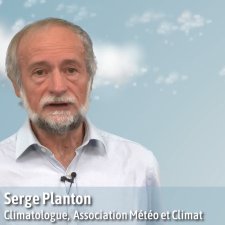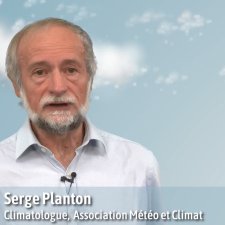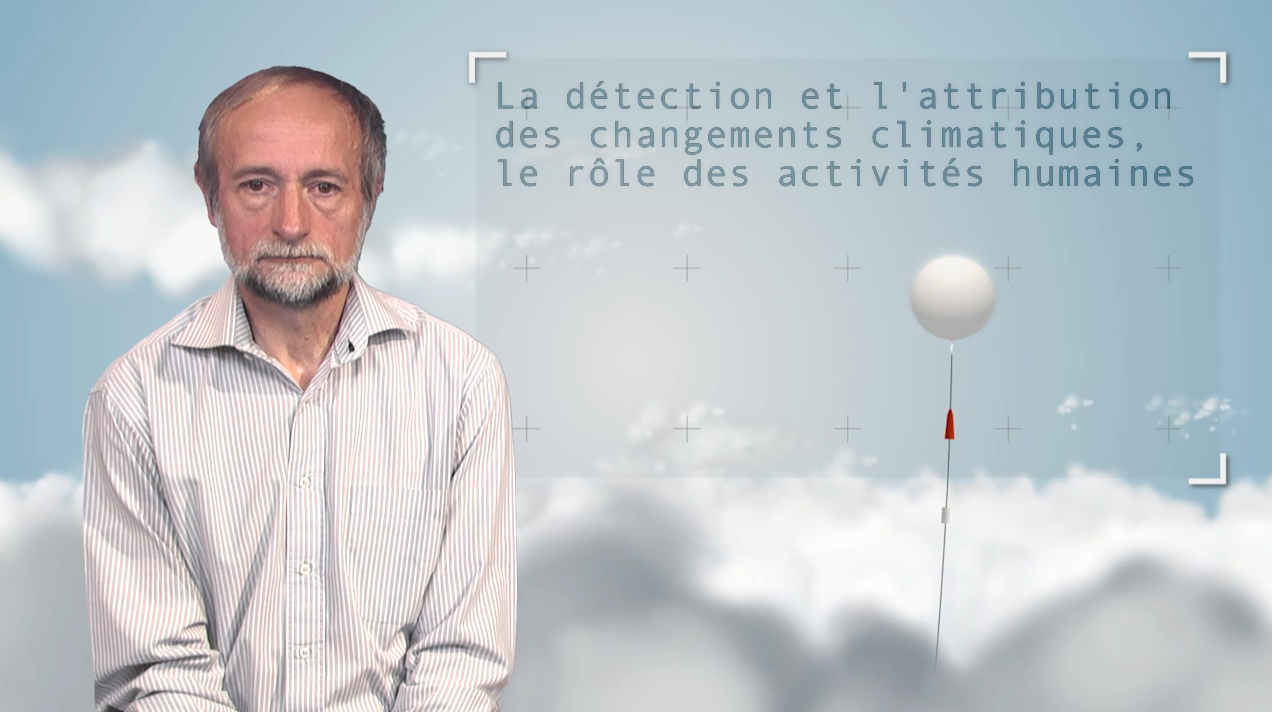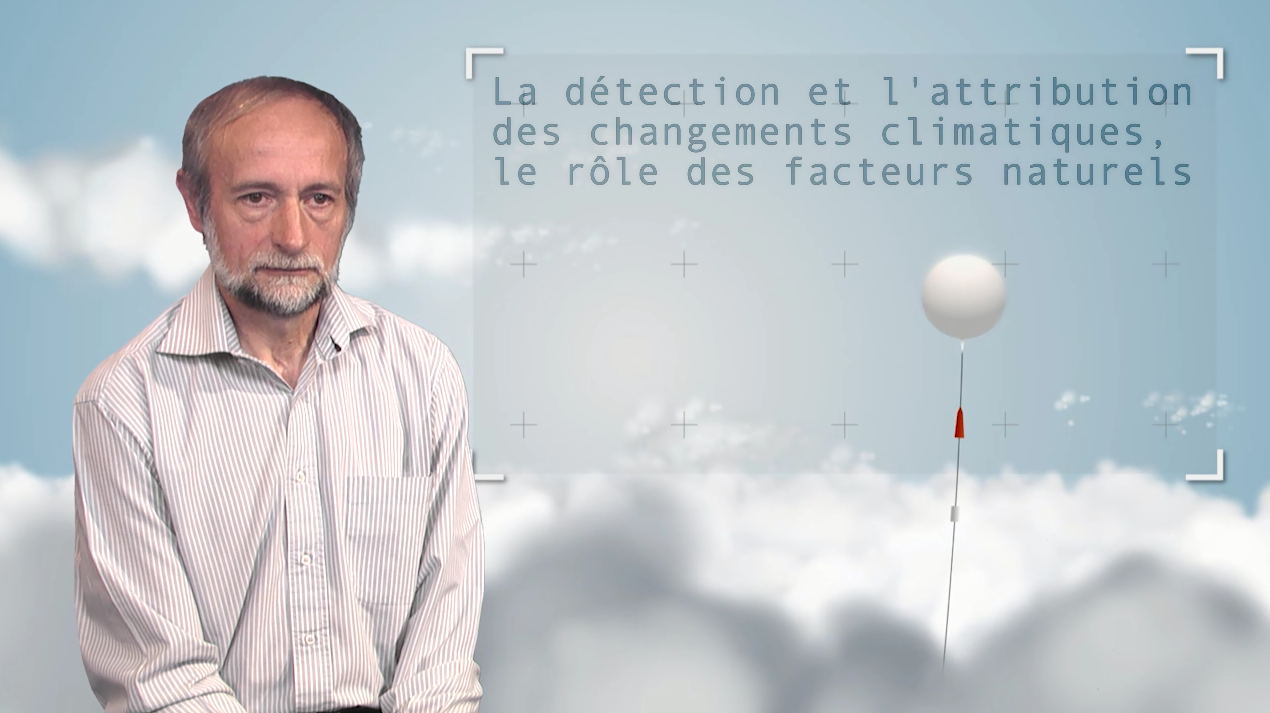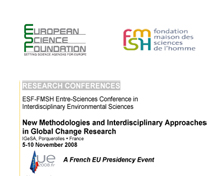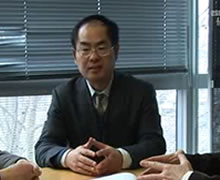Planton, Serge (19..-....)
Serge Planton, is head of the climate research group of the “Centre National de Recherches Météorologiques”, the research service of Météo-France. Graduated from the “Polytechnique” school in Paris, he first worked at developing the representation of the physical processes in the French weather forecast model. In 1982, he joined the research service where he developed an activity in the modelling of convection and of surface processes (ocean, sea-ice, land) in climate models. Before taking the responsibility of the climate division in 1990, he was during five years head of a team involved in the study of ocean-air interaction from the local process scale, involving the participation to ocean field experiments, to the climate modelling scale. He recently focussed his personal research activity on the detection of climate change signals in the observations, particularly at the regional scale, and their attribution to natural or anthropogenic causes. During these last five years, he was a member of several national and international scientific committees including the scientific committee of the French program “Gestion et Impacts du Changement climatique” (aiming at supporting interdisciplinary researches in the field of the impact of climate change), the Scientific Steering Committee of PIRATA (an ocean observing system in the Tropical Atlantic based on moored buoys) and the Scientific Steering Group of the MedCLIVAR project (aiming at promoting climate research in the Mediterranean area). He was also recently a member of a section of the National Centre for Scientific Research in charge of evaluating the work of researchers and research units. He participated, sometimes as a coordinator, to several national research projects in the field of ocean-air interactions or climate modelling. He was part of European projects of the 5th and 6th framework program of European Union as LSPCR (Land Surface Processes and Climate Response), PRISM (PRogramme for Integrated earth System Modelling) and presently CIRCE (Climate Change and Impact ResearCh: the Mediterranean Environment). He contributed directly to the last IPCC assessment report as review editor of the chapter 9 of the Working Group I report entitled: “Understanding and Attributing Climate Change”.
References :
· Noilhan, J., and S. Planton, 1989. A simple parameterization of land surface processes for meteorological models. Mon. Wea. Rev., 117, 536-549. http://ams.allenpress.com/archive/1520-0493/117/3/pdf/i1520-0493-117-3-536.pdf
· Planton,S., M. Déqué, F. Chauvin, and L. Terray, 2008 : Extreme Climate Events. C.R. Géoscience, 340, 564-574. http://www.academie-sciences.fr/publications/comptes_rendus/pdf/CRGeoscience_article.pdf
· Spagnoli, B., S. Planton, M. Déqué, O. Mestre, and J.-M. Moisselin, 2002: Detecting climate change at the regional scale : the case of France. Geophys. Res. Let., 29, 10, 90-1, 90-4. http://www.agu.org/pubs/crossref/2002/2001GL014619.shtml
· Hasselmann, K., 1993: Optimal fingerprints for the detection of time-dependent climate change. Journal of Climate 6:1957-1971. http://www.springerlink.com/content/pdafh749q03xwpg3/fulltext.pdf
· Hegerl, G.C., F. W. Zwiers, P. Braconnot, N.P. Gillett, Y. Luo, J.A. Marengo Orsini, N. Nicholls, J.E. Penner and P.A. Stott, 2007: Understanding and Attributing Climate Change. In: Climate Change 2007: The Physical Science Basis. Contribution of Working Group I to the Fourth Assessment Report of the Intergovernmental Panel on Climate Change [Solomon, S., D. Qin, M. Manning, Z. Chen, M. Marquis, K.B. Averyt, M. Tignor and H.L. Miller (eds.)]. Cambridge University Press, Cambridge, United Kingdom and New York, NY, USA. https://selectra.co.uk/sites/selectra.co.uk/files/pdf/understanting%20climate%20change.pdf
· Stott, P.A., G.S. Jones, and J.F.B. Mitchell, 2003: Do Models Underestimate the Solar Contribution to Recent Climate Change? Journal of Climate, 16, 4079-4093. http://climate.envsci.rutgers.edu/pdf/StottEtAl.pdfhttp://climate.envsci.rutgers.edu/pdf/StottEtAl.pdf
Vidéos
Climate observations
Serge Planton, a climatologist and member of the Météo et Climat association, explains the difference between the weather and the climate in this video.
L'observation du climat
Serge Planton, climatologue et membre de l'association Météo et Climat, explique dans cette vidéo ce qu’est la différence entre la météo et le climat.
EN-7. Detection and causes of the climate change: the role played by human factors
Serge Planton focuses on the climate evolution during the 160 last years. Thanks to simulations, he highlights the responsibility of human activities on the observed warming.
EN-6. Detection and causes of the climate change: the role played by natural factors
Serge Planton talks about the natural sources of climate variability, like the "internal" climate variability, volcanism or the energy transmitted by the Sun. He compares these natural factors with
6. La détection et l'attribution des changements climatiques, le rôle des facteurs naturels
Dans cette vidéo, Serge Planton discute des sources naturelles de variabilité du climat, comme la variabilité "interne" du climat, le volcanisme ou encore l'énergie transmise par le Soleil. Il met en
7. La détection et l'attribution des changements climatiques, le rôle des activités humaines
Dans cette vidéo, Serge Planton se focalise sur l'évolution du climat au cours des 160 dernières années. Il met en évidence, à l'aide de simulations, la responsabilité des activités humaines dans le
Detection and Attribution of Climate Change to Different Causes
According to the last IPCC report, the most part of the observed increase in globally averaged temperatures since the mid-20th century is very likely due to the observed increase in anthropogenic
Debate
The European Science Foundation (ESF) and the French Foundation of the Maison des Sciences de l’Homme (FMSH) (within the Entre-Sciences programme) have agreed to jointly develop a new conference
Simulations, scénarios et prospectives
En réunissant des scientifiques, des experts du Groupe intergouvernemental d'étude du climat (GIEC), des représentants d'administrations et d'institutions de diffusion de (information scientifique, le

